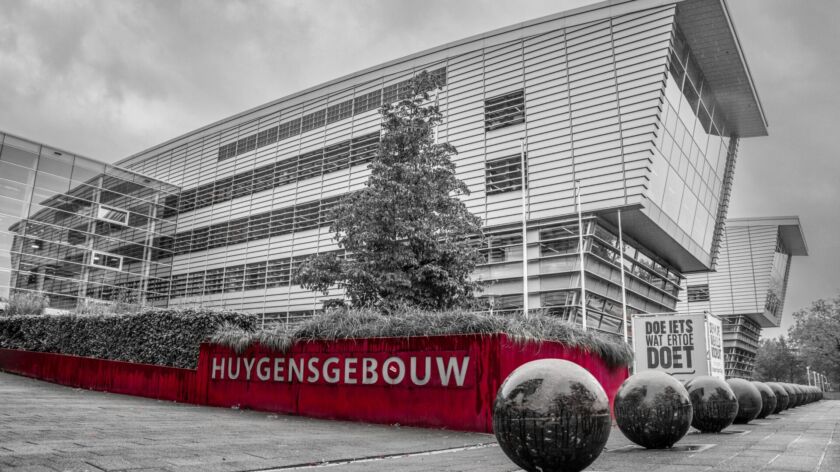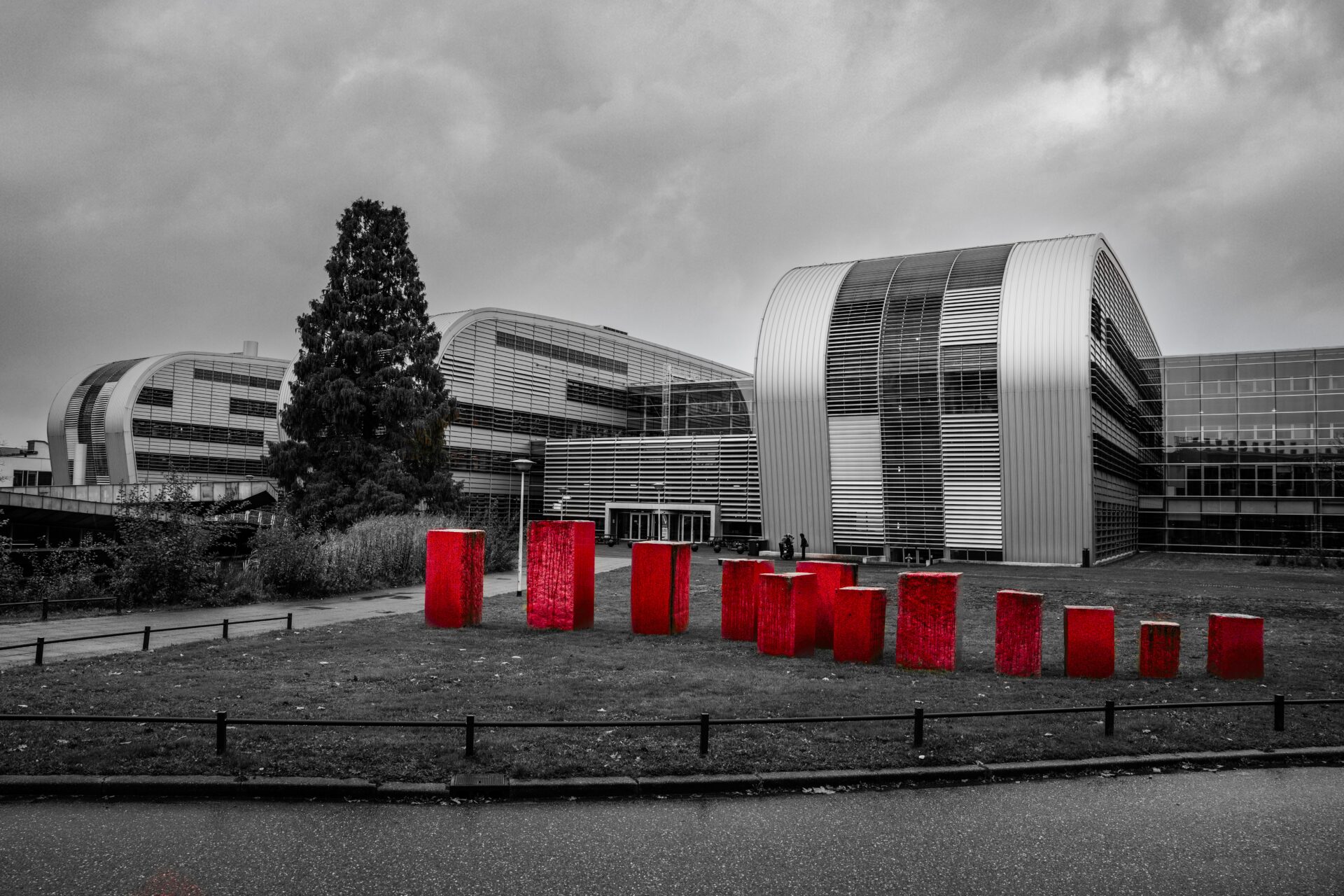Faculty of Science sounds alarm: budget already fails to cover costs even before extra cuts by cabinet
-
 Foto en beeldbewerking: Johannes Fiebig
Foto en beeldbewerking: Johannes Fiebig
After years of generous spending, Radboud University is once again facing major cuts. How are the faculties dealing with this? At the Science Faculty, it is five to midnight. Due to rising costs, inflation, and wage and rent increases, the Faculty does not know whether it will be able to meet the set austerity targets by 2027. And that is without the additional cuts announced by the Schoof administration.
The straw that broke the camel’s back. That is how Dean Sijbrand de Jong of the Faculty of Science refers to the Schoof administration’s announced cuts to higher education. The Faculty has long been struggling financially due to rising costs and wages as a result of inflation.
Radboud University in overdraft
No faculty or university department will escape the cuts. But how do you handle such a project? In the coming weeks, VOX will be talking with the faculties: What can they save on, and what do they want to maintain at all costs? How much should these changes deliver and what will the staff and students notice? This is the third article in this series.
Part 1: Radboud University forced to make tough cuts, budget shrinks by tens of millions
Part 2: Faculty of Social Sciences bursting at the seams, but still required to save one million this year
Moreover, says Administrative Director Karen de Bruijn, the Faculty is facing a deficit for the second year in a row due to disappointing student numbers. ‘For this and next year’s budget, this represents a cut of 3.5 million euros.’ With the additional austerity measures announced by the government, the Faculty is facing a big problem, said Dean Sijbrand de Jong.
Million deficit
The task given to all faculties by the Executive Board to have a ‘neutral budget’, i.e. no longer make a loss, by 2027 is unachievable for the Faculty of Science at the moment, says Administrative Director Karen de Bruijn. ‘For the coming year, we will continue to follow the budget, but we can no longer do so the following year,’ she explains.
The Faculty is facing a deficit of millions. How many millions, the Dean and Administrative Director would not say. Although the budget has been submitted to the Executive Board, the Faculty Board wants to have it approved by the Executive Board and the Supervisory Board before it is made public.
But based on what the Dean and Administrative Director are saying, the situation is dire. ‘If we continue like this, we will for sure need help from some emergency fund,’ says De Jong.
He previously referred to the Faculty as a ‘Very Hungry Caterpillar’ when it came to research applications. How is it that a faculty that is so successful in bringing in money ends up having a financial deficit?
Compensation not adjusted
There are several reasons for this. Compared to other faculties, the Faculty of Science finances a relatively high number of its staff with funds from the secondary or tertiary funding stream, De Bruijn explains. In total, this concerns more than one in three employees. These employees are paid according to the university CLA, but the recent salary increases of 10% last year and 4% this year, respectively, have to be partly paid out of the Faculty’s own pocket. ‘The compensation we get for this is not adjusted at the same rate,’ says De Bruijn.
‘Indirect costs – think of office and lab space, ICT costs, and administration – are not covered for projects from secondary and tertiary funding streams (grants from research funders like NWO, KNAW and the EU and private foundations respectively, eds.),’ says De Jong. ‘We have to pay the great majority of all these costs from the primary funding stream (government funding, eds.), but these funds are not adjusted accordingly. So eventually, the money runs out. And that is where we are right now. Or actually slightly past it.’
And then you still have all the other costs. With all its laboratories and research, the Faculty is an energy-intensive operation. And raw materials like helium and commonly used materials like aluminium have become more expensive in recent years.
The adjustment in the reference estimates is also to the disadvantage of the Faculty of Science, explains De Jong. ‘Because to be clear, our student numbers are not dropping. We have about 100 more students at the Faculty this year. And that while we do get less money.’
Fewer PhD candidates
To cover the costs, the Faculty already decided to hire fewer new people in recent years. As a result, the Faculty expects to have approximately 80 fewer PhD candidates in the coming years. An immediate vacancy freeze was also imposed recently. Conversions from temporary to permanent contracts are still being made, but in principle no new vacancies are being published. ‘That is painful because it leads to us missing out on talented researchers,’ says De Jong.
The dire financial situation has also forced the Faculty to backtrack on some promises. Newly recruited researchers who had been promised certain things, such as a few PhD candidates to support them or set up a new research lab – so-called start-up packages – are now left hanging. ‘That is not good practice,’ De Jong admits ruefully. ‘But if we don’t do it, we will be facing much bigger problems.’
‘We are missing out on talented researchers’
The hiring of external parties at the Huygens Building will also be curbed, and lunches will have to be handled more ‘frugally’ in future. Other measures, such as no longer hiring student assistants or phasing out leave dams, are not yet required at present.
Incidentally, it is not yet known whether the cuts will be distributed proportionally among the various institutes within the Faculty; that is still being discussed internally.





